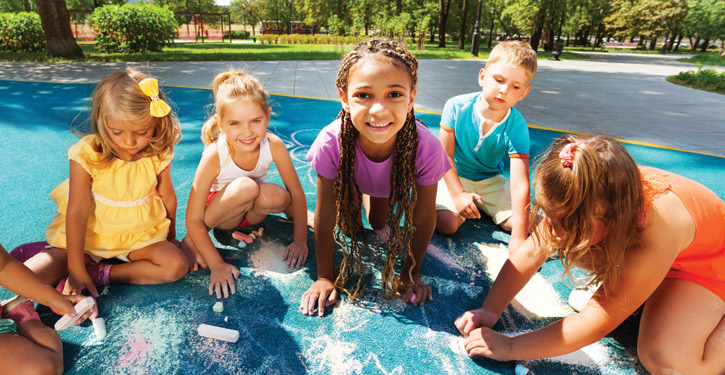Nicole Leuci Gilmer, the marketing director at Imagination Playground, shares how expressive play is critical to a child’s development and overall wellness.
It has now been over three years since the world closed off its citizens from one another. In March 2020, most experts agreed closing businesses, schools and most public gathering spaces was not only warranted but necessary for public health and safety. Unfortunately, the impacts of COVID-19 are still interwoven into our daily lives, especially those of children too young to realize they are being impacted or to remember the “before.” Outside of the obvious reminders, like a used disposable mask sitting abandoned in the grocery store parking lot, there are small, daily remnants and societal shifts that show the impact this 21st century pandemic held worldwide.
Screentime averages rose for people of all age groups, which is directly connected to the production of cortisol — the stress hormone. More screen time led to more stress, which then created strife within home-groups. Additionally, there were significantly fewer face-to-face interactions and socialization for everybody, which led to concerns over the social and intellectual development of the younger members of society.
Jim Stallman, the owner and president of Imagination Playground, said when COVID-19 hit, kids were in front of screens more than ever, and worse than that, they were isolated. We’re more adamant now than before that our country’s children need to be moving and playing together, collaboratively.
Playtime is where children develop many of the vital social and learning skills they will carry with them throughout their lives. Unfortunately, due to those years of isolation and social distancing, our country’s current kindergartners, preschoolers and older toddlers didn’t learn how to engage in play with their peers. This group tends to not have the critical thinking, imaginative abilities and collaborative skills as those just a few years older than them. Much like throwing a boulder in a small pond, the ripple effects of this isolating time have spread into other areas of their lives. This can look like lacking self-esteem and confidence, poor emotional regulation skills and rising communication concerns.
Every child is different and their needs, wants, desires and play styles will be as well. Having a creative venue for expressive play is critical to a child’s development and overall psychological wellness. Experts agree that imaginative, interactive play with various loose parts may be the best weapon to combat these deficits. The best part of this problem is the solution can be simple to implement. Loose-part play systems are inexpensive compared to a traditional playground, effortless to implement and easily mobile. For a recreation professional, it’s a triple threat – educational, inexpensive and a draw for the whole community.










